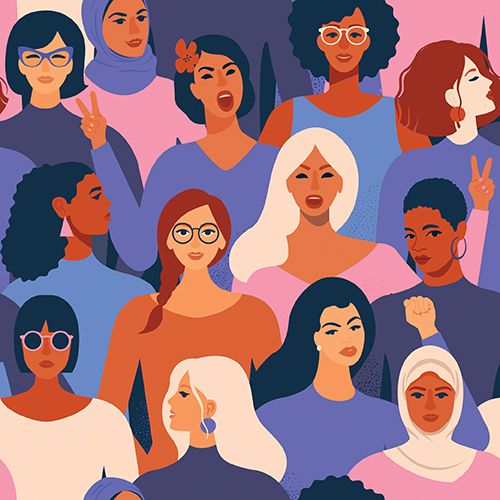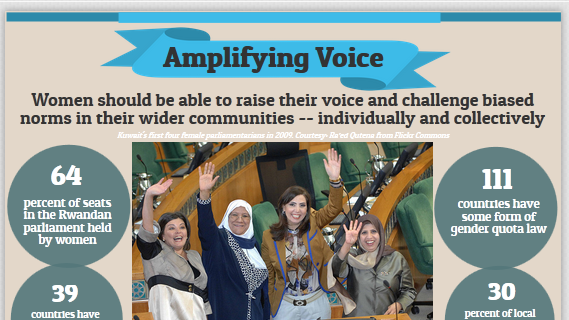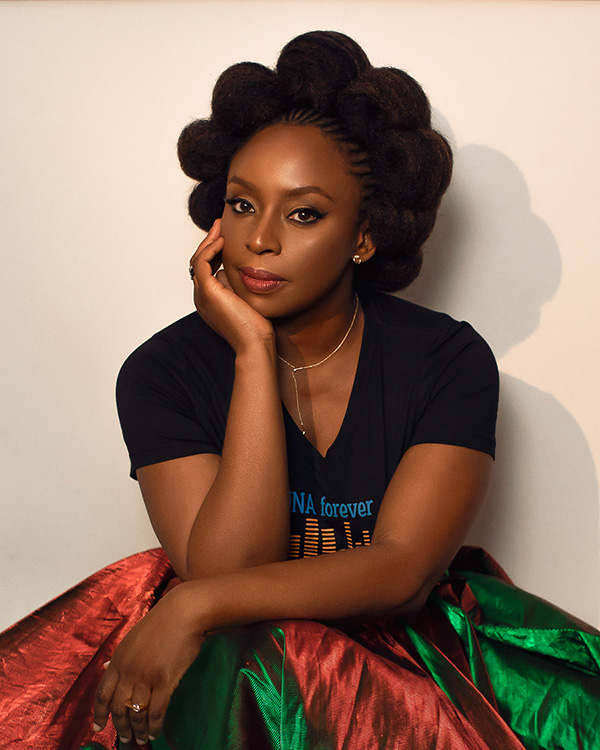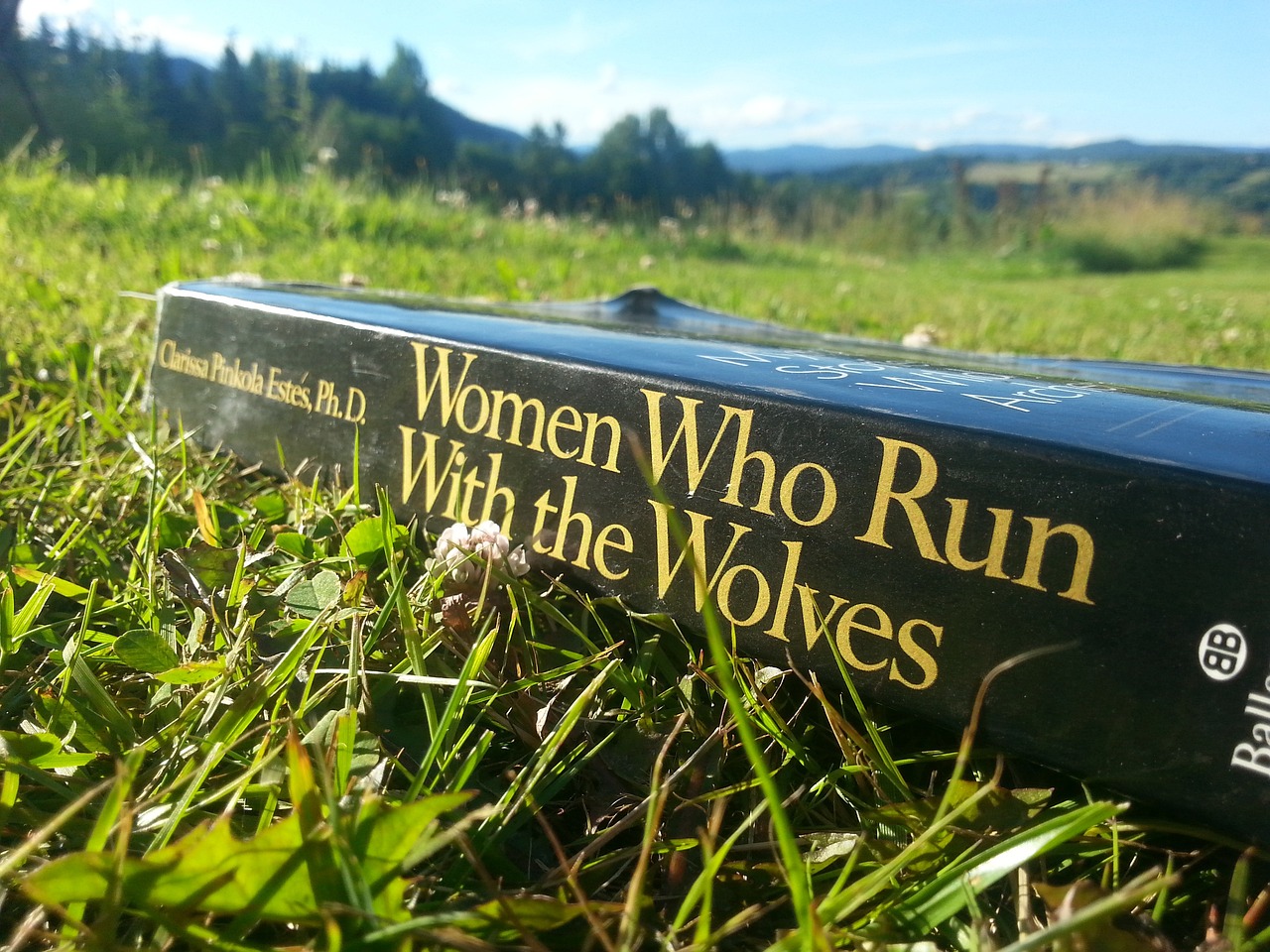Contemporary literature has evolved into a powerful medium for feminist voices to be heard and celebrated. Through the pages of novels, poems, and essays, authors are challenging societal norms, dismantling stereotypes, and amplifying the diverse experiences of women. In this article, we embark on a literary journey, exploring the multifaceted landscape of feminism in contemporary literature. From iconic works to emerging voices, we delve into how literature empowers women and reshapes our understanding of gender, identity, and equality.
Contemporary literature has emerged as a vibrant and essential arena for feminist voices to not only be heard but to flourish, shape discourse, and spark transformation. Within the pages of novels, poems, and essays, authors have harnessed the power of words to challenge the status quo, deconstruct stereotypes, and illuminate the intricate tapestry of women’s experiences. In this article, we embark on a literary odyssey, navigating the diverse and evolving landscape of feminism in contemporary literature. From celebrated classics to the voices of emerging authors, we plunge into the ways literature empowers women and reshapes our collective understanding of gender, identity, and equality.
At the heart of contemporary feminist literature lies a profound commitment to dismantling the deeply ingrained patriarchal norms and expectations that have persisted for centuries. Authors engage with intersectionality, recognizing that women’s experiences are complex and deeply intertwined with factors such as race, class, sexuality, and ability. This nuanced exploration gives rise to stories that challenge not only gender inequality but also the intersecting forms of oppression that affect women differently.
Iconic works like Chimamanda Ngozi Adichie’s “We Should All Be Feminists,” Roxane Gay’s “Bad Feminist,” and Margaret Atwood’s “The Handmaid’s Tale” have become pillars of contemporary feminist literature. These works shine a spotlight on issues such as women’s agency, reproductive rights, and the insidious nature of misogyny. They have become rallying cries for feminists worldwide, igniting conversations and inspiring activism.
Yet, the landscape of feminist literature is not confined to these well-known works; it is continually enriched by emerging voices. New authors, many from underrepresented backgrounds, are contributing to a more inclusive and diverse literary canon. Their stories delve into the complexities of womanhood and explore the nuances of identity, belonging, and resistance.
Feminist literature serves as a catalyst for change, encouraging readers to confront uncomfortable truths, engage in critical self-reflection, and become advocates for gender equity. It empowers women to see themselves not as victims of a system, but as agents of change, capable of reshaping their own narratives and influencing the broader societal discourse.
Furthermore, contemporary feminist literature serves as a dynamic mirror reflecting the evolving nature of feminism itself. It engages with contemporary issues such as online harassment, reproductive justice, LGBTQ+ rights, and #MeToo, demonstrating that feminism is not a static ideology but an ever-adapting force for social progress.
In essence, contemporary literature is a dynamic arena where feminism thrives, where women’s voices are celebrated, and where the struggle for gender equality is not just chronicled but actively advanced. It is a testament to the enduring power of storytelling, reminding us that literature has the ability to not only reflect our world but also to shape it. Through these narratives, feminism transcends being a mere concept; it becomes a living, breathing force that propels us toward a more equitable and inclusive future.
For a comprehensive look at this subject, we invite you to read more on this dedicated page: Womanist Theology

The Emergence of Feminism in LiteratureContemporary feminism in literature builds upon the rich history of feminist movements that have fought for women’s rights and gender equality. In the latter half of the 20th century and into the 21st century, literature became a potent platform for feminist expression, tackling issues such as gender discrimination, reproductive rights, and the complexities of intersectionality.
The emergence of contemporary feminism in literature is a testament to the ongoing struggle for gender equality and the evolution of feminist thought. Building upon the foundations laid by earlier feminist movements, modern literature serves as a dynamic and vital platform for feminist expression and activism.
As we delve into the latter half of the 20th century and continue into the 21st century, literature has become a powerful tool for dissecting and addressing the myriad issues that persist in the fight for gender equality. One of the central themes that contemporary feminist literature confronts is gender discrimination in all its forms. Authors and poets employ their craft to unveil the deeply ingrained biases and prejudices that continue to permeate society. Through their narratives, they hold a mirror to the unequal treatment and opportunities that women often face, sparking important conversations and challenging the status quo.
Reproductive rights are another crucial battleground for contemporary feminist literature. In the realm of fiction, non-fiction, and poetry, writers explore the complex and deeply personal choices that women make regarding their bodies and reproductive health. These narratives not only advocate for a woman’s right to control her own body but also delve into the societal pressures, moral dilemmas, and political obstacles that women grapple with in the pursuit of autonomy over their reproductive choices.
The concept of intersectionality is a defining feature of contemporary feminist literature. It acknowledges that feminism is not a one-size-fits-all movement but rather an intricate web of intersecting identities and experiences. Authors and poets embrace intersectionality in their work, recognizing that the struggles of women are profoundly shaped by factors such as race, class, sexual orientation, and disability. They shine a spotlight on the unique challenges faced by women who exist at the crossroads of multiple marginalized identities, ensuring that their voices are heard and their experiences are validated.
In essence, contemporary feminist literature is a vibrant and evolving landscape that continues to redefine and expand the boundaries of feminist thought. It challenges stereotypes, questions the prevailing norms, and encourages readers to confront their own biases and assumptions. Through its powerful narratives, it not only critiques the existing structures of power and privilege but also offers a vision of a more equitable and inclusive world where the voices and experiences of all women are valued and celebrated.
In a world where the struggle for gender equality persists, contemporary feminist literature stands as a resounding call to action. It reminds us that the fight for women’s rights is not confined to the pages of books but is an ongoing, collective endeavor that requires active engagement, advocacy, and a commitment to dismantling the barriers that impede progress. Through literature, we not only gain insight into the experiences of women but also find inspiration to be agents of change in the ongoing journey toward a more just and equal society.
If you’d like to dive deeper into this subject, there’s more to discover on this page: Patriarchy and Inequality: Towards a Substantive Feminism

Defining Feminism in Contemporary LiteratureContemporary feminist literature encompasses a wide spectrum of voices and themes. It challenges patriarchal norms, explores the nuances of female identity, and advocates for gender inclusivity. These narratives shed light on the struggles, triumphs, and resilience of women across the globe.
Contemporary feminist literature stands as a vibrant tapestry woven from a diverse array of voices and themes, reflecting the ever-evolving landscape of feminism in the modern world. This literature transcends boundaries and challenges societal norms, shedding light on the multifaceted aspects of female identity, and advocating for a more inclusive and equitable world. It is a powerful force that resonates with readers, sparking conversations and driving social change.
One of the most compelling aspects of contemporary feminist literature is its commitment to dismantling patriarchal norms and narratives. Authors in this genre fearlessly confront long-standing power imbalances, exposing the inequalities that persist in our societies. Through their words, they challenge oppressive systems, offering readers a lens through which to critically examine the status quo and imagine a world where gender equality is the norm.
These narratives also delve into the complexities of female identity. They acknowledge that women are not a monolithic group, but a diverse array of individuals with unique experiences, backgrounds, and aspirations. Contemporary feminist literature celebrates this diversity, exploring the intersections of gender with race, sexuality, class, and more. It creates space for stories that have often been marginalized or silenced, allowing readers to better understand and appreciate the richness of the female experience in all its variations.
Moreover, contemporary feminist literature is a powerful advocate for gender inclusivity. It extends its reach beyond traditional gender binaries, recognizing and embracing the fluidity of gender identities. It challenges society to expand its understanding of what it means to be a woman or a man and calls for a world where individuals are free to express their gender in ways that align with their authentic selves.
These narratives are not just about struggle; they also celebrate the triumphs and resilience of women. They highlight the achievements of individuals who have broken barriers, shattered glass ceilings, and forged paths for future generations. They showcase the strength and determination of women who have fought for their rights and the rights of others, inspiring readers with stories of courage and empowerment.
In an age when the feminist movement continues to evolve and grow, contemporary feminist literature serves as a vital catalyst for change. It sparks conversations, fosters empathy, and ignites the desire for progress. Through these narratives, readers are invited to join a global dialogue on gender equality, encouraging us all to work together to create a world where the struggles and triumphs of women are celebrated, and where gender inclusivity is not just an ideal but a lived reality.
To expand your knowledge on this subject, make sure to read on at this location: Feminism, gender medicine and beyond: a feminist analysis of …

Many contemporary feminist authors embrace intersectionality, recognizing that gender discrimination is intertwined with other forms of oppression, such as race, class, and sexuality. This inclusive approach results in narratives that reflect the diverse experiences of women.b. Reclamation of Narratives: Feminist literature often involves the reclamation of women’s stories, enabling female characters to tell their own tales, free from stereotypes and distortions.c. Empowerment and Agency: These narratives celebrate women’s agency and empowerment. They showcase women as protagonists who take control of their destinies, make choices, and challenge societal expectations.
For additional details, consider exploring the related content available here Girls coming of age: possibilites and potentials within young adult …

Adichie’s “We Should All Be Feminists” and “Americanah” are celebrated for their exploration of feminism, race, and identity.b. Roxane Gay: Gay’s “Bad Feminist” is a collection of essays that examines the complexities of modern feminism and the role of pop culture in shaping perceptions of gender.c. Margaret Atwood: Atwood’s “The Handmaid’s Tale” and “The Testaments” are dystopian masterpieces that critique patriarchal societies and the erasure of women’s rights.
These remarkable authors and their iconic works have left an indelible mark on contemporary feminist literature:
a. Chimamanda Ngozi Adichie: Adichie’s literary contributions go beyond storytelling; they are a clarion call for gender equality and racial justice. “We Should All Be Feminists” is a concise yet powerful essay that challenges society’s complacency with gender disparities. It urges readers to recognize the pervasive nature of sexism and advocates for a feminism that includes everyone. “Americanah,” on the other hand, is a beautifully woven narrative that explores the complexities of identity, race, and love. Adichie’s protagonist, Ifemelu, provides a thought-provoking lens through which readers can examine the immigrant experience and the subtle, everyday nuances of racism and sexism.
b. Roxane Gay: In “Bad Feminist,” Roxane Gay presents a collection of essays that dissect the multifaceted landscape of contemporary feminism. She tackles the complexities and contradictions within the feminist movement, highlighting that no one fits neatly into the boxes of ideology. Through her witty and incisive prose, Gay challenges readers to rethink their preconceptions about feminism and encourages them to embrace the imperfections of being a “bad feminist.” Her exploration of pop culture’s influence on gender perceptions is particularly insightful, showcasing how media and entertainment both reflect and shape our views on gender and identity.
c. Margaret Atwood: Margaret Atwood’s dystopian novels, “The Handmaid’s Tale” and “The Testaments,” serve as cautionary tales that resonate deeply in today’s world. Set in oppressive patriarchal societies, these masterpieces expose the dire consequences of erasing women’s rights and agency. Atwood’s writing is a stark reminder of the fragility of gender equality and the importance of safeguarding hard-fought gains. Her narratives, though chilling, empower readers to stand against regressive ideologies and to protect the rights and freedoms that form the bedrock of gender equality.
These authors and their works not only enrich the world of literature but also inspire and invigorate the feminist movement. They remind us that feminism is a dynamic, evolving force that adapts to the complexities of the modern world. Through their storytelling, Adichie, Gay, and Atwood challenge us to reflect, engage, and work collectively to dismantle the structures of inequality and oppression that persist in society. Their literary contributions continue to ignite conversations, spark activism, and shape a future where feminism is not just a call to action but an unshakable reality.
For additional details, consider exploring the related content available here AN EXAMINATION OF WOMEN’S VOICES IN CHIMAMANDA NGOZI …

The Significance of Feminist LiteratureContemporary feminist literature is a catalyst for change. It empowers women by offering diverse and relatable role models, fostering dialogue about gender equality, and inspiring activism. It challenges society to reevaluate its treatment of women and marginalized genders, paving the way for a more inclusive and equitable future.
The Significance of Feminist Literature
Contemporary feminist literature is not just a collection of books; it is a catalyst for change. It plays a profound role in the ongoing struggle for gender equality and social justice. Here’s why it holds such immense significance:
Empowering Women through Representation
One of the most powerful aspects of feminist literature is its ability to empower women by offering them diverse and relatable role models. Through the pages of these books, readers encounter characters who defy stereotypes, break free from traditional gender roles, and assert their agency. These literary heroines teach us that women can be strong, independent, and multifaceted.
The representation of women from various backgrounds, cultures, and identities in feminist literature is instrumental in dismantling the one-size-fits-all notion of womanhood. It allows women to see themselves reflected in the stories they read, fostering a sense of validation and empowerment. When women recognize their experiences and struggles in literature, it validates their existence and serves as a source of strength.
Fostering Dialogue about Gender Equality
Feminist literature acts as a bridge for dialogue about gender equality. It sparks conversations about the systemic discrimination and challenges that women, and marginalized genders, face daily. By delving into these narratives, readers confront uncomfortable truths about gender-based disparities in society.
These books raise questions about intersectionality, privilege, and the intersections of gender with race, sexuality, and class. They prompt readers to critically examine their own biases and assumptions, paving the way for more informed and empathetic discussions about gender equality and social justice.
Inspiring Activism and Advocacy
Feminist literature is a wellspring of inspiration for activism. It ignites the fire within readers, motivating them to stand up for their rights and advocate for change. The stories of resilience, determination, and resistance found in these books have the power to transform readers into activists and advocates.
From the suffragettes of the early 20th century to the contemporary movements like #MeToo and Black Lives Matter, feminist literature has played a pivotal role in shaping and fueling these social justice movements. It provides the intellectual and emotional fuel needed to challenge the status quo and demand a more equitable world.
Challenging Society’s Treatment of Women
Perhaps the most essential role of contemporary feminist literature is its unapologetic challenge to society’s treatment of women and marginalized genders. It calls out sexism, misogyny, and discrimination in all their forms. It exposes the double standards, violence, and inequalities that persist and demand redress.
By confronting these issues head-on, feminist literature acts as a catalyst for change. It refuses to accept the status quo and compels society to reckon with its shortcomings. The stories told within these pages challenge us to envision a world where gender equality is not just an ideal but a reality.
In conclusion, contemporary feminist literature is a powerful tool for empowerment, dialogue, activism, and social change. It is a testament to the enduring strength of women and marginalized genders, as well as a call to action for a more inclusive and equitable future. Its significance lies not only in the stories it tells but in the transformative potential it holds for individuals and society as a whole.
If you’d like to dive deeper into this subject, there’s more to discover on this page: Women Leadership, Culture, and Islam: Female Voices from Jordan …

In contemporary literature, feminism is not merely a theme; it is a powerful force that empowers women’s voices and perspectives. Through storytelling, authors are breaking down barriers, confronting injustice, and shaping a world where gender equality is not just a dream but a lived reality. Contemporary feminist literature invites us to listen, learn, and join the ongoing journey toward a more just and equitable society, one story at a time.
In contemporary literature, feminism is not merely a theme; it has evolved into a powerful and transformative force that empowers women’s voices and perspectives in profound ways. Authors across genres and cultures are harnessing the written word to break down barriers, confront deep-seated injustices, and shape a world where gender equality is not just a distant dream but a tangible and lived reality.
These authors are not confined to one specific style or approach. They come from diverse backgrounds, experiences, and artistic sensibilities, but they share a common commitment to dismantling patriarchal norms and amplifying the voices of marginalized women. Whether through novels, poetry, essays, or graphic novels, they wield their pens like swords, challenging societal norms and calling for change.
Contemporary feminist literature is a reflection of the times we live in. It doesn’t shy away from addressing the complexities and nuances of gender relations in our modern world. It delves into the intersections of feminism with other social justice movements, exploring issues related to race, class, sexuality, and disability. These narratives are as diverse and multifaceted as the women they represent, revealing the tapestry of experiences that make up the global feminist movement.
Through the power of storytelling, these authors are not only shining a light on the struggles and triumphs of women but also inviting readers of all genders to engage in meaningful dialogue. They challenge preconceived notions, encourage critical thinking, and inspire empathy. They invite us to walk in the shoes of their characters, to see the world through their eyes, and to confront the systemic inequalities that persist.
Contemporary feminist literature is not just a mirror reflecting the present; it’s a catalyst for change. It encourages us to question ingrained biases, confront uncomfortable truths, and take action. It reminds us that feminism is not a monolithic ideology but a dynamic and inclusive movement, welcoming a diversity of voices and perspectives.
As readers, we have the privilege and responsibility to engage with these narratives, to listen to the stories of women and non-binary individuals who have been silenced for too long. We learn from their experiences, their resilience, and their visions for a more equitable world. In doing so, we become allies in the ongoing journey toward a more just and equitable society, one story at a time.
Contemporary feminist literature, with its ability to challenge, inspire, and provoke change, invites us to be part of this transformative narrative. It reminds us that literature is not just a reflection of society but a tool for reshaping it. And as we read and engage with these powerful stories, we become active participants in the collective effort to create a world where feminism is not just a word but a lived reality for all.
Should you desire more in-depth information, it’s available for your perusal on this page: Intersectional feminism: what it means and why it matters right now …

More links
For a comprehensive look at this subject, we invite you to read more on this dedicated page: Feminism, gender medicine and beyond: a feminist analysis of …
